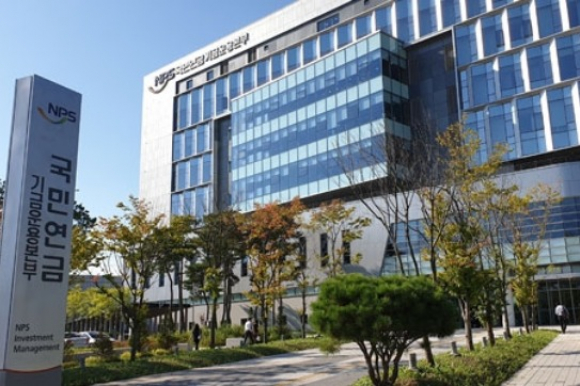
National Pension Service's investment management
National Pension Service (NPS) of South Korea, the world's third-largest pension fund with 948.7 trillion won ($768.9 billion) in assets under management, is moving against other key shareholders of Korean companies by exercising its veto rights. It disapproves of some agendas despite advisory firms' recommendation of approval, with growing doubts about its profitability.In the shareholder meetings held in Korea this year, some 75.1% of the other stakeholders gave the nod to 31 agendas of 14 Kospi-listed firms that NPS has vetoed, The Korea Economic Daily found. Another 23.4% of stakeholders, including NPS, disapproved of the agendas. The remaining 1.5% expressed abstention.Domestic institutional investors showed a higher approval rate than the entire shareholders’. Korean institutional investors and foreign investors posted 79.6% and 78% approval rates, respectively. In the 31 agendas, foreign investors had 56.7% of the voting rights, and minority shareholders, domestic institutional investors and NPS had 28.4%, 7.7% and 7.2%, respectively. NPS also vetoed some agendas that proxy advisors recommended voting for. Advisory firm Korea Corporate Governance Service (KCGS) issued disapproval recommendations for only 35.3% of the agendas that NPS vetoed this year. The firm recommended voting for most of the other agendas that NPS vetoed. Another advisory firm Korea ESG Research Institute recommended disapproving only 42.1% of the agendas NPS vetoed. The six major proxy advisors, including Institutional Shareholder Services (ISS) and Glass Lewis, issued recommendations of disapproval for 36.3% of the agendas vetoed by NPS. The pension fund’s move doesn't help enhance its return on investment, said Lee Hyung-wan, a senior researcher at Korea Listed Companies Association (KLCA). “A stakeholder needs to have other shareholders’ consent and keep up with the overall market trend for profitability. But NPS' choices are very different from those of other shareholders,” said Lee. NPS has voting rights that could be impactful for nearly 100 Korean firms' businesses. The pension fund holds 5% or more shares in each 98 Kospi-listed firm, according to the NPS investment arm’s disclosure of the first quarter of 2022. In the 23.4% of the shareholders that exercised vetoes, foreign investors and NPS respectively make up 13.5% and 9.3%, followed by the other domestic institutional investors with 0.4% and minority stakeholders with 0.2%. Of the entire vetoes this year, NPS’s votes accounted for 39.9%. By Tae-Ho Leethlee@hankyung.comJihyun Kim edited this article.
Most Read